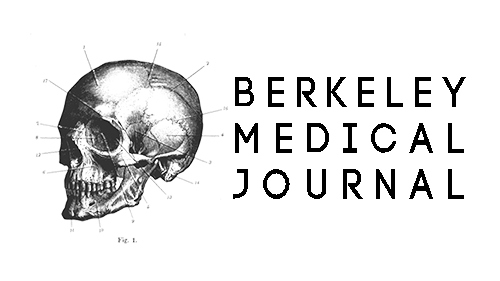by: Brenda Martinez
There comes a time when some people start forgetting their meaning in life. Not only are they affected by this problem, but the families are as well. In a study done in the American Journal of Geriatric Psychiatry, published in January 10, 2017, stated that “patients with dementia with Lewy bodies often experience visual hallucinations”. This creates problems for both the patient and caregiver. Many caregivers forget to take care of themselves because they spend most of their time invested in their loved ones – developing bad sleeping habits, depression, or other illnesses. Family members such as grandchildren struggle to understand what exactly is happening. Additionally, many established daily routines are easily manipulated when someone in the family suffers from Lewy bodies because they require significant time investment. John-Paul Taylor and his team conducted several experiments at Harvard University on a small group of individuals to discover why people who suffer from Dementia with Lewy bodies (DLB) struggle with visual hallucinations.
People with Lewy bodies are difficult to care for because they go through a wide array of emotions, and it is uncertain when they will act out. Every case of Lewy bodies is different and though people can research how to help their loved ones, the solutions they find may not work for their specific case. In addition, DLB is a disease that many doctors have trouble diagnosing. Lewy bodies are proteins that are found in the brainstem, affecting the dopamine neurotransmitter, which leads to Parkinson-like symptoms. Though this disease is hard to diagnose, as it may take more than a year or two for symptoms of DLB disease to appear in a patient, it is very common. DLB is an umbrella term that refers to Parkinson’s disease dementia, as well as dementia with Lewy bodies. Parkinson’s disease is caused by a lack of dopamine which in turns affect various brain functions. This disease takes a long time to diagnose and people suffering it may live for a very long time thereafter. Though Parkinson’s dementia and dementia with Lewy bodies are two different diseases, they both affect the brain in a similar manner. For instance, one of the brain chemicals, acetylcholine, weakens and begins to inactivate, which can affect perception and behavior.
Though the actual causes for these DLB hallucinations are still unknown, researchers have realized that, because the superior colliculus, a region in the midbrain that can be affected by Lewy bodies, is important for the visual system, it may responsible for the visual hallucinations brought on by Lewy bodies. There are two forms of Lewy bodies: a pure form and a mixed form which incorporates changes throughout the brain tissue. Those with pure form DLB only have symptoms associated with DLB and no other disease. The mixed form, which is most common, is where DLB symptoms become associated with Alzheimer’s or Parkinson’s Disease. Along with the Lewy body proteins, patients with DLB have an unknown protein called alpha-synuclein. Alpha-synuclein causes a misfolding of a layer of the brain, resulting in aggregation. 60-80% of people with DLB will experience visual hallucinations that are caused by alpha-synuclein and its associated brain tissue misfolding. Many have complex visual hallucinations, changing the way they perceive the world – including how they perceive animals, people, and faces. Afflicted individuals often cannot recognize familiar faces or even perceive a person because all they see is a pixelated face. Subsequently, many patients with DLB become very aggravated and lose their sense of self.
John-Paul Taylor and his team compared people with Alzheimer’s to people with DLB in an attempt to solve the mystery of the different neuropathological conditions the brain forms in different patients. Both Alzheimer’s and DLB consist of memory problems. The key difference between the two is that Alzheimer’s deals with memory loss, whereas DLB deals more with movement impairments and visual hallucinations, along with memory loss, as well. They chose to study Alzheimer’s and DLB because DLB and Parkinson’s are too similar. The focus of the study was to identify neurodegenerative changes that may be the cause of hallucinations in DLB patients.
They tested 13 elderly postmortem patients and compared them to 10 postmortem Alzheimer’s patients, and 10 postmortem DLB patients. According to the methods outlined in the paper, they compared the different brain tissues through quantitative neuropathological methods. At the autopsy, the midbrain was dissected from the cerebrum. They also tested for brain density and whether or not age affected any lesions of the brain. Neuronal and glial cells were counted from every layer in the brain.
Their findings suggested that there were no differences in the different layers of the brain. They did find some, but not enough, evidence differentiating the two pathologies, since the sample size was small. When comparing neuronal densities, they found that only Alzheimer’s showed a density reduction, when compared to the control. Though the cause is not clear as to what exactly is happening in the brain when visual hallucinations occur, these scientists are one step closer to solving the problem. As a result of this experiment, it is now known that alpha-synuclein plays an important role in visual hallucinations. These new findings may make it easier for future research to be done on both the brain overall, as well as those specifically with dementia with Lewy bodies, which could ultimately lead to harnessing enough understanding to create a treatment for DLB.
Erskine, Daniel, Alan J. Thomas, John-Paul Taylor, Michael A. Savage, Johannes Attems, Ian G. Mckeith, Christopher M. Morris, and Ahmad A. Khundakar. “Neuronal Loss and Î-Synuclein Pathology in the Superior Colliculus and Its Relationship to Visual Hallucinations in Dementia with Lewy Bodies.” The American Journal of Geriatric Psychiatry (2017): n. pag. Web.



